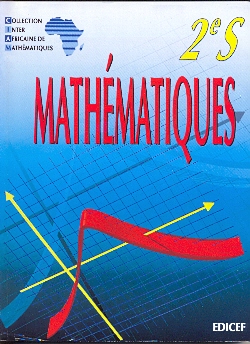| Devillers, Guillaume, S.S.P.X. | ||||
| Éditions du Sel | ||||
| 2005 | ||||
| Français | ||||
| 169 pages | ||||
| 1.80 MB | ||||
[tab] [content title="Description"] The article in question, **"Is the Only Legitimate World Government that of Jesus Christ and His Church?"**, engages deeply with theological and political arguments about the legitimacy of a global government. Here’s a concise breakdown of the core points raised in the text: ### Objections Raised in the Article: 1. **The Necessity of a World Government**: It is argued that, in addition to the spiritual governance of the Church, a world government is necessary for achieving unity among nations and lasting peace, particularly in light of modern technological advancements and global interconnectedness. The example of the United Nations (UN) and the increasing complexity of global trade are cited as evidence that only a global authority can maintain order in this interconnected "global village." 2. **Religious Intolerance and War**: Some suggest that religions, especially the Catholic Church, tend toward intolerance and have historically caused wars. Therefore, they claim that religion must be excluded from the governance of the world, which should instead follow the secular, liberal democratic model that has reportedly brought prosperity and peace to nations like the United States. 3. **Enforcement of Laws**: There is a concern that the Church lacks the power to enforce its laws on nations, and thus is unable to function as a global authority. 4. **Historical Precedents of Temporal Power**: The article addresses the argument that the Church has already allowed for the existence of temporal power (e.g., the Holy Roman Empire), and thus the Church cannot be the only legitimate global government. ### Response to the Objections: 1. **Legitimacy of the World Government of Christ and His Church**: The response emphasizes that legitimate government should focus on the common good of humanity, which includes both spiritual and temporal needs. However, it argues that spiritual goods (salvation of souls) are of far greater value than temporal ones. The Church, as instituted by divine providence, is described as the ultimate authority over all governments, with Jesus Christ as the King of Kings and Lord of Lords. 2. **Peace and Unity through True Religion**: The response asserts that true religion (the Catholic Church) is inherently a cause of unity and peace. While false religions and impiety can cause wars, the true Christian faith leads to peace, even if it might sometimes result in conflict to defend truth. The argument further critiques liberal democratic values, which it claims are inherently flawed due to their indifferentism and materialism, even if they have led to some economic prosperity. 3. **The Church’s Dual Power**: The article invokes Pope Boniface VIII’s famous declaration in *Unam Sanctam* (1302), which states that the Church holds "two swords" – one spiritual, the other temporal. The temporal sword (worldly authority) must be used in service to the Church and its mission. The Church’s power is seen as effective and sovereign when properly exercised, particularly in teaching doctrine and guiding governments to act in accordance with divine law. 4. **The Possibility of a Universal Temporal Power**: The article acknowledges that a universal temporal authority (e.g., the Holy Roman Empire) could exist, but only if the temporal ruler (the Emperor) is submissive to the Pope in spiritual matters. Without this submission, the temporal power becomes a danger rather than a blessing. The historical failures of the Holy Roman Empire are referenced to show that even Christian emperors could fail in their submission to the Church’s spiritual authority. ### Conclusion: The article asserts that the only legitimate world government is the one established by Jesus Christ and His Church. Any attempt to establish a secular or anti-Christian global government is considered subversive and harmful, leading to moral and spiritual decay. The argument emphasizes that true peace and order in the world can only be achieved through submission to the spiritual authority of the Church and Christ’s teachings. This perspective is deeply rooted in Catholic theology and aims to highlight the dangers of secular globalism, drawing from historical events and Church doctrine to argue for the supremacy of spiritual governance over temporal political structures. The text ultimately calls for a return to the idea that the Church must guide all temporal powers for the benefit of mankind’s ultimate good — salvation. --- If you are looking for more detailed theological or historical analysis, this text draws from the teachings of Saint Thomas Aquinas and the Church’s magisterium, particularly the encyclicals of Pope Leo XIII and Pius XI. [/content] [content title="Sommaire"] [/content] [content title="Auteur(s) de l'ouvrage"] [/content] [/tab]
[facebook src="bibliosciencesorg"/]
Mots-Clés: Télécharger Essai de doctrine sociale et politique à l'école de saint Thomas d'Aquin EBOOK PDF EPUB DJVU. Download Essai de doctrine sociale et politique à l'école de saint Thomas d'Aquin EBOOK PDF EPUB DJVU.








